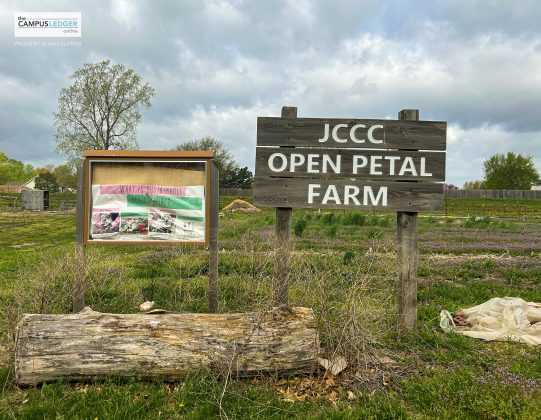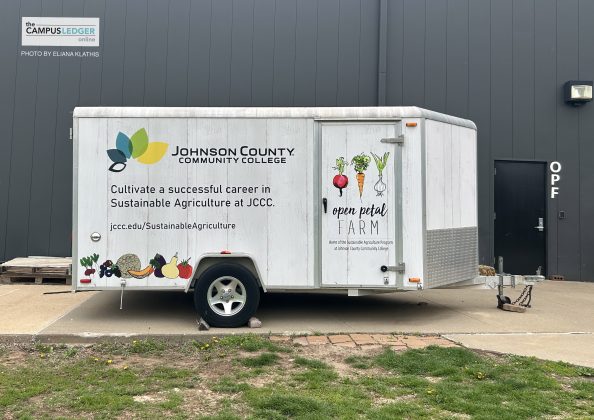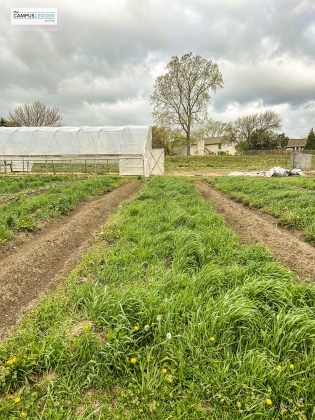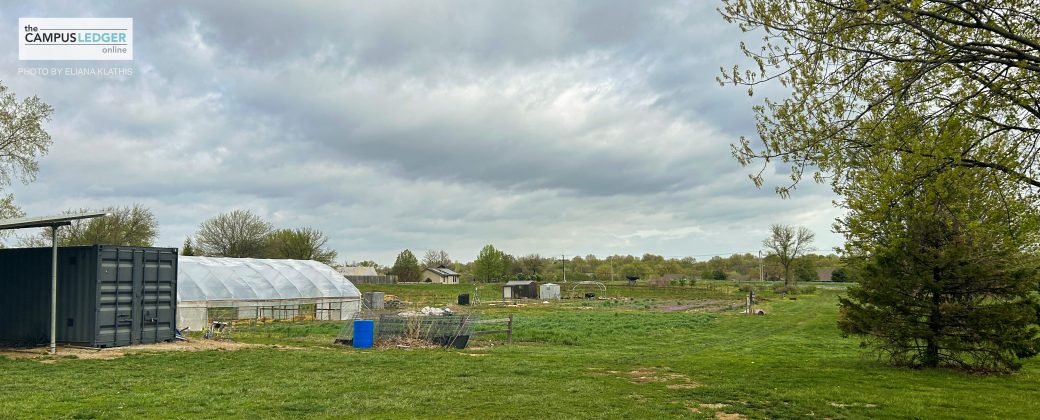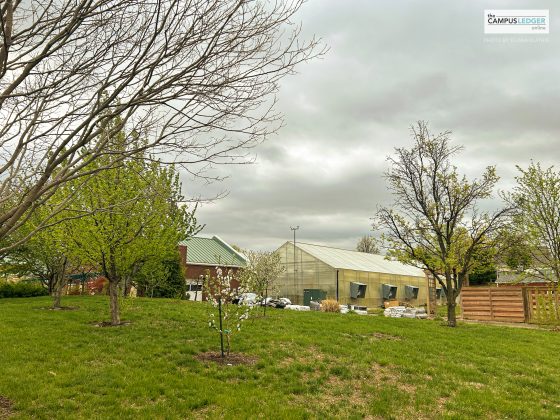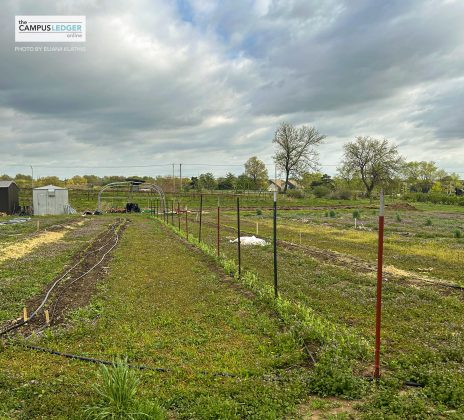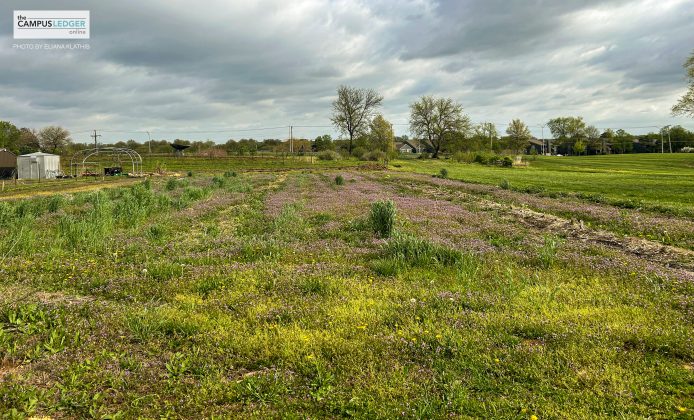JCCC’s three-acre farm, Open Petal, shows students sustainable agriculture techniques with hands-on learning opportunities from the on-campus farm. The farm has been open since 2010 and is run by Rick Mareske.
Adam Benfer an antropology professor, said “Before I was even working here. I came by with my brother just to drive around campus one day and I was like ‘oh cool they have a farm.’ But ever since I got here as a professor I have been hearing about it regularly”. He also said “So it’s there. It’s not as prominent as it could be within the community. A lot of students probably don’t spend enough time here necessarily to know that it’s there’s but I think it’s pretty cool.”
The definition of sustainable agriculture according to the National Agricultural Library is farming in such a way to protect the environment, aid and expand natural resources and to make the best use of nonrenewable resources.
Iman Amin, sophomore, who took a sustainable agriculture course says “We took a closer look at the composting process, from start to usable fertilizer…. we took a closer look at where and how everything we use every day comes from. We learned about the price our environment pays when you support certain big Agriculture companies and products.”
According to the Natural Resources Defense Council, organic or sustainable agriculture can help combat climate change, “Studies show that the elimination of synthetic nitrogen fertilizers alone as is required in organic systems [agriculture], could lower direct global agricultural greenhouse gas emissions by about 20%.”
“I think its important for them to learn about agriculture, or maybe just the basics of agriculture. There’s no necessity to learn but it’s something important to know,” Aidai Sevigny, a sustainability intern and freshman, said.
She added “I took a sociology class last semester and we learned about the agriculture industry and the rampant abuse that goes on with mass-produced farms like Tyson Foods. I also learned that people who own farms are disproportionately affected by these mass corporations. And these mass corporations employ undocumented immigrants… there’s no one going against these monopolies.”
The sustainable agriculture program at JCCC takes 29 credit hours to complete and also involves a paid internship with the on-campus farm or composting/recycling program.
A few classes include organic and integrated pest management, sustainable food management, and sustainable food systems, according to the JCCC sustainable agriculture page. The certification awards students the opportunity to become farmers managers, greenhouse operators, be able to create green agriculture policies in governmental positions, etc.
“I think if more students took this [class], they’d put more thought into what they eat as well as thinking twice before tossing everything in the trash cans (because it’s easier) vs. the recycling bins,” Amin said.
According to Smithsonian Magazine without healthy soil, farmers won’t be able to grow nutrient-dense food to feed our growing population. The calculated loss in the region is part of a critical issue; some experts suspect that Earth will run out of usable topsoil within 60 years.
“Most people don’t think about [where food comes from] at all really. You see it in every little aspect; people also then tend to waste food, because they don’t think about all of the effort that it gets to that,” Benfer said.
He also said “Casen point, tomatoes. Some people don’t like tomatoes but they go to whatever burger place and the tomato comes automatically on it because they didn’t ask it not to be [on] and what’s the first thing they do… they throw it away.”
According to Frontiers Journal Research, plants can purify the air from pollutants such as carbon dioxide, volatile organic components, carbonyl, nitrates, sulfates, ammonia, calcium, and ozone.
Amin reiterates what Benfer said, “I think everyone should know where their food comes from, and at what price to the environment.”
According to Center for Science Education, the predictions of climate change in the future include changing water cycles leading to more precipitation, rising sea levels from the melting of glaciers and polar ice caps. Along with ocean acidification causing massive marine organisms extinctions, increasing extreme weather events, and more consequences.
Benfer and Sevigny added a few points about environmental issues in the future.
“I think climate change is an issue that we have to tackle, but it is also hard because there are so many things going on right now and some people don’t believe in it, which it’s been scientifically proven by a number of studies,” Sevigny said. “I think we should support a green earth, it will help up in the long run. So why not invest in green legislature and policies.”
Benfer said “I don’t own a car, I haven’t for a decade. I just take public transit or don’t go places… I compost, every week when I take my garbage out I have a small grocery store bag amount of trash that I have.” He added “I try not to buy new things… Always be thrifty and thinking about where things come from. And that’s just a way of limiting the overall carbon footprint. It’s the little things one can do.”
To learn more about sustainable agriculture and campus farm visit jccc.edu/sustainable-agriculture.
Eliana Klathis, features editor






















